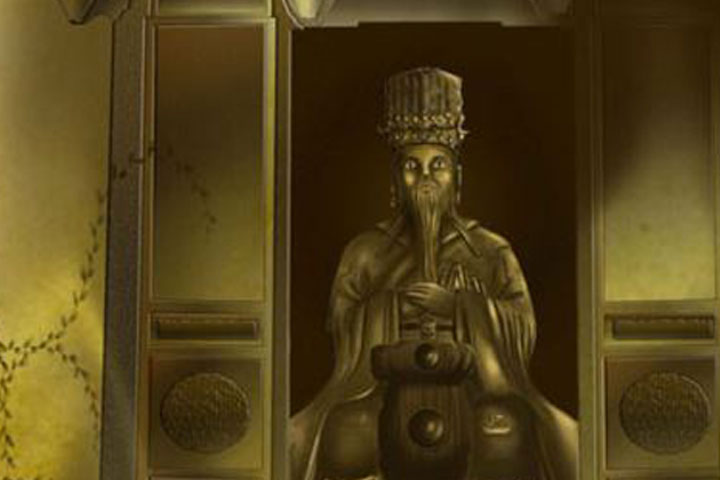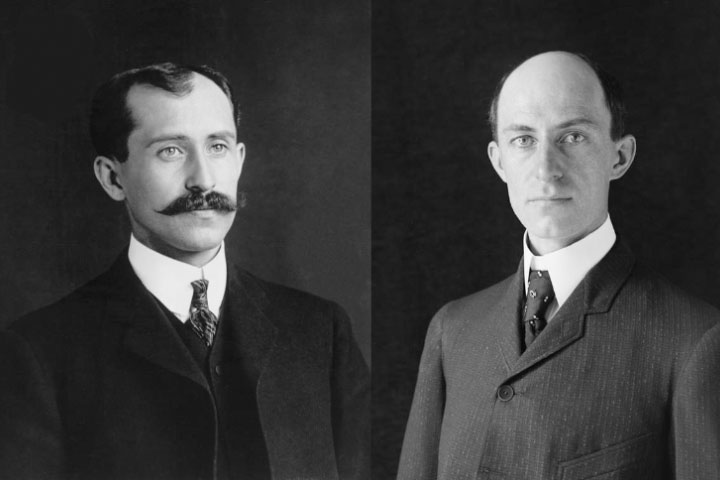Introduction
“Unless you believe there are no better men or finer woman on Earth you will certainly crave for what you consider as the best. Meaning, you want to be the husband of the very best of wives, and that she be wants to marry the most exemplary man," said Aspasia of Miletus, a woman much reviled during her lifetime and jested at later, through comedy dramas written by ancient playwrights as a harlot who sold carnal pleasures to nobles.
Aspasia was neither a harlot nor a woman without virtues. She was of noble ancestry, highly educated and a great thinker. She was also one of the teachers of the great Socrates. Aspasia was derogated by some ancient thinkers and writers because of her immense knowledge and wit, through which she could outshine any rhetorician or philosopher in a debate.
Her above quote is part of an encounter with a famous Socratic student, Xenophon and his wife. The couple attempted to humiliate Aspasia by asking her whether she would prefer her own ornaments or better ones of a wealthier neighbour. Aspasia replied she would prefer better ones. But she asked Xenophon and his wife whether they would prefer to have one-another as spouses or prefer better ones. The couple could not respond. Aspasia then told the two, that the term “better” is relative and hence, perceptions differ according to every person’s thoughts.

Peculiar to ancient Greek traditions, records of notable women in the field of thoughts were rarely maintained. As was in the case of Aspasia, though her contemporary and Socratic student Plato states in his “Memorabilia” that she was the daughter Axiochus of Miletus, a nobleman.
Modern day historians, after piecing together works of great thinkers and gleaning facts from ancient Athenian history conclude that Aspasia was born in Miletus, now a part of Turkey, in or around 470BC. She reportedly came from a wealthy or aristocratic family of Miletus, though details about her lineage and parents are unknown.

It is widely accepted that young Aspasia migrated to Athens with her parents, since her father could have been one of the ruling elite of the city-state’s vast empire. Her works indicate she was privileged to exclusive education, which was typical to the rich and famous of that era.
It is also well known, that she was the wife of Pericles, a great Athenian orator and aristocrat. Some historians aver she may have been Pericles’ second wife. Aspasia and Pericles had a son, who was also named Pericles.
Ancient Greek thinkers however discredit Aspasia claiming she was Pericles’ mistress and a woman who indulged in the flesh trade by providing ‘heteras’ or female companions to the rich and famous of ancient Athens.

Modern day thinkers rubbish the contention of ancient Greek writers who describe Aspasia as a woman sans virtues, a mistress or a brothel keeper. They claim, most ancient Athenian, including some thinkers such as Xenophon, were envious of Aspasia for her knowledge, wit and contributions to psychology and hence, spared no attempt to deride her in their books and writings.
The major bone of contention between these ancient Greek writers and Aspasia was, her husband Pericles, would take her to every philosophical debate hosted by royals. Her entry into an all-male domain was considered a sacrilege of sorts, though nobody dared to question Pericles, who wielded immense power, for flouting the widely accepted practice of keeping women away from such debates. Hence, these writers vented their ire through their writings.
Modern day thinkers believe most stories related to vices, avarice for riches and accepting money for sensual pleasures is pure mudslinging on Aspasia’s character- for she was pivotal in teaching Pericles his renowned art of fiery rhetoric and oration, and secondly, since she was not an Athenian citizen by birth and did not have equal rights.
Plato quotes Socrates in his ‘Memorabilia’ stating his great master as highly influenced by Aspasia’s astuteness in “matchmaking,” and that she never cheated either the man or the woman whom she matched. Hence, it is evident that Aspasia was treated with respect by Athenian families for getting their daughters married to suitable grooms- which would not be possible if she were a woman of easy virtue.
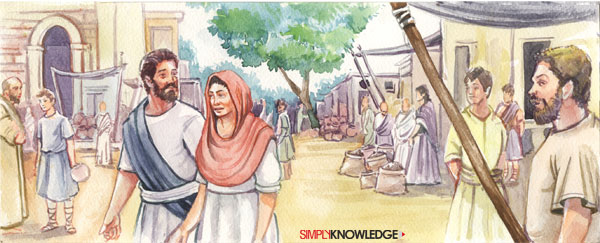
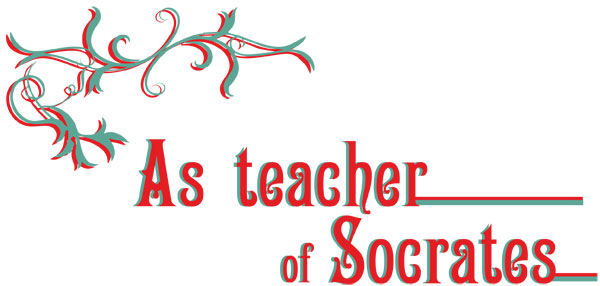
Socrates explicitly credits Aspasia as one of the three women who tutored him in human thought. Aspasia, he said, taught him rhetoric which helped him refine the “gadfly” or Socratic Method of responding to questions with a newer question to test the depth of one’s claimed knowledge on any particular topic. “Once made equal to man, woman becomes his superior,” Socrates said about Aspasia.
Some thinkers speculate, Aspasia taught rhetoric to Socrates as revenge against Pericles who was away on wars since she believed her husband was wasting the skills she had painstakingly taught. They also claim Aspasia and Socrates could have been involved in a failed amorous relationship, leading the great, eccentric thinker to say: “From the deepest desires often come the deadliest hate.”
Socrates also credited Aspasia as being an epitome of an ideal wife, saying during their dialogues, she theorized about ideal marital relationships. Aspasia, according to Socratic quotes, said, aristocratic Athenian women are prisoners of their homes and hence, limit their abilities becoming nothing more than mistresses in the truest sense, since all domestic work is performed by slaves and servants while the wives serve only as baby makers.
Considering praise from Socrates was a rarity, the accolades he showered on Aspasia are clear indicator she was indeed an exceptionally talented woman.
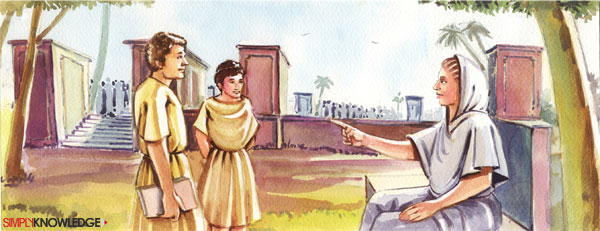

Ancient Athens was renowned for its rather ambiguous laws wherein any person could file a lawsuit against the other, without proper evidence or reason. Some Athenians who bore resentments against Pericles but were wary of his power and influence, launched an indirect assault on the fiery orator and statesman: They charged Aspasia with impiety claiming, as a Milesian, she had shown utter disrespect for Athenian deities while breaking away from traditions that restricted foreign women’s rights.
The case drew great attention within and outside Athens, since Aspasia was a renowned figure, albeit often derided. Unfazed, Aspasia chose to stand trial and wished to defend herself- a common system in ancient Athens. But Pericles, incensed by these charges, chose to defend Aspasia. Using fiery rhetoric and oratory that he had learnt from Aspasia, he defended his wife to an extent that Pericles and the jury were moved to tears. A popular anecdote about this trial is that Pericles used such fiery oration to defend Aspasia that he would not have done so even if all his wealth were at stake. Aspasia was acquitted but some conservative Athenians continued to debase her indirectly.
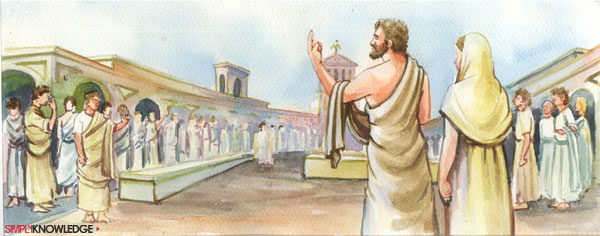

In 430BC, Pericles was called again to lead the Athenians into the Peloponnesian War that was knocking at the gates of the city-state. But the war was proving disastrous for all sides involved- the Athenians, Spartans and the Persians: They were facing a deadly enemy whose power of destruction knew no bounds. This enemy was the terrifying Bubonic Plague.
Soon after the outbreak of war Pericles was injured and returned home. Shortly thereafter, his two sons from his first wife perished due to the epidemic. Pericles made a fervent plea to Athens to grant Athenian citizenship for his son from Aspasia- which was granted, considering the aristocrat’s immense contributions towards the country.

By 432 BC, the Bubonic Plague was ravaging all of Europe, claiming countless lives daily. That year, Pericles also succumbed to the epidemic, leaving Aspasia defenceless.
A few ancient writers claim Aspasia remarried or became mistress to one Lysicles, a commoner believed to be a shepherd or farmer and tutored him in politics, oratory and rhetoric. Under her tutelage Lysicles rose to great heights and became an aristocrat. This story is widely discredited by most modern day thinkers who view it as another attempt to discredit Aspasia and depict her as an opportunistic, avaricious woman who lacked morals. Regardless, ancient writers do not mention Aspasia in any extant text after the death of Pericles and her alleged alliance with Lysicles.
It is claimed Aspasia died in or around 410BC but this date is open to debate since no verifiable records exist to prove or discount this theory.

A debate about who invented the famous Socratic Method- a form of cross questioning to judge the depth of a person’s knowledge on any topic, rages in some quarters of modern psychologists and thinkers.
Socrates would question people about their knowledge claiming his wisdom emerged from the fact he was aware of his ignorance. Yet, the Socratic Method, used to date in education and criminal investigations, was highly refined about 2,500 years ago. It is believed that Aspasia helped Socrates refine his oratory and rhetoric that would make his famous technique more effective.
That Socrates defended himself at his famous trial and embarrassed his accusers also proves that his oratory was refined and hence, could have been taught by Aspasia, whose skills were sharp enough to attract ire and appreciation
Though no ancient historian acknowledges this fact, Socrates’ successor, Plato, permitted women to join his renowned Academy in Athens, the first school of its kind to allow female students, possibly after being swayed due to appreciation showered by his teacher on Aspasia.
Next Biography








